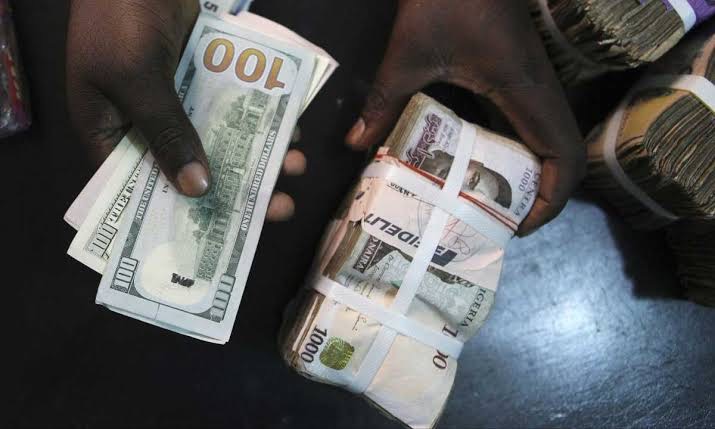The Nigerian foreign exchange market recorded a high dollar supply on Friday, May 24, 2024, positively impacting the value of the naira in the official market.
The surge in market turnover reflects a positive sentiment of traders in the official market. The foreign exchange market recorded a turnover of $556.25 million.
In the official market, the naira appreciated by 0.19% against the US dollar from N1,485.66 per dollar on May 23, 2024, to close at N1,482.81 on Friday, May 24, 2024.
Data from the FMDQ Exchange shows that the spot rate traded as high as N1,511 per dollar and as low as N1,400.
The Nigerian currency, the naira, fell in the parallel market on Friday, May 24, 2024.
The current rate shows a depreciation of 0.33% from the N1,505 per dollar reported on May 22, 2024.
Black market traders quoted the dollar’s buying rate at N1,485 per dollar and the selling rate at N1,510, showing a gap of N25 per dollar.
It had earlier been reported that the Central Bank of Nigeria (CBN) banned street trading of foreign currencies by Bureau de Change (BDC) operators, citing the need to regulate the foreign exchange market properly.

CBN’s director of risk management, Blaise Ijebor, said street trading of foreign currencies is not allowed as the apex bank does not want BDCs under trees.
The apex bank had asked BDCs to reapply for new operational licenses following the issuance of new guidelines requiring operators to meet new capital requirements.
According to reports, the Association of Bureau de Change Operators of Nigeria (ABCON) called for a review of the new capital requirements by the CBN.
ABCON President Aminu Gwadabe said the new requirement is against global standards.
He said the approved guidelines for the increase in the requirement for BDCs are against international best practices.
“The Bureau De Change sector has seen serious policy inhibitors. In 2014, just an exchange not a deposit bank, they increased the capital from N10 million to N35 million and now we are doing the same thing, even microfinance it is a bank, and their capital base is N200 million. Now we are raising the capital base of BDCs from N35 million to N500 million.- that is for Tier-2, Tier-1 is N2 billion. It is highly against global standards,” he said.
It was earlier reported that a monthly analysis shows that the Nigerian currency, the naira, has lost ground against the pound sterling in the last month.
Available data revealed that as of April 2024, the Nigerian currency had recovered massively against the pound sterling, trading at an average of N1,200 per pound.
The development improved compared to the March records when the naira traded at an average rate of N1,762 to the pound.
Olaitan Ibrahim